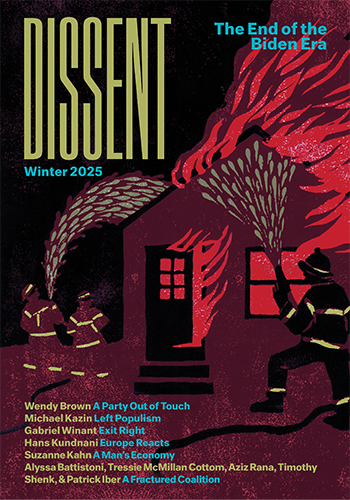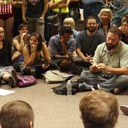
The financial crisis of 2007–2008 inspired a shallow but significant revival of Marxist analysis in academic life. A violent upsurge in theory, however, has corresponded to no particular insurrection in practice. If any radical left tendency has been responsible for inspiring action, the palm should go to Marxism’s historic antagonist on the Left—anarchism.
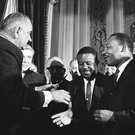
Legal precedent is against the recent Supreme Court decision to gut the Voting Rights Act. There is, however, a grim precedent for the Roberts Court in the Civil Rights Cases of 1883, which also turned the law on its head.

This week in Belabored: insurgent teachers in Newark and Washington, DC, teacher evaluations in New York, benefit cuts in North Carolina, and a settlement between Hyatt and UNITE HERE. Plus special guest Michelle Chen.
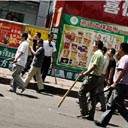
The violence that occurred in Urumqi, capital of the Xinjiang region in western China, on July 5, 2009 was both shocking and predictable. Four years later, what are the prospects for further unrest in Xinjiang?

How can we confront the challenge of climate change, especially when those hit first and hardest by climate change are poorer and more marginalized than those with the power to take large-scale action?

This week in Belabored: fighting hospital closures in Brooklyn, the firing of a dozen Walmart strikers, an end to the New York legal services strike, and a new bill to make managers pay for retaliation. With special guest Rich Yeselson, author of “Fortress Unionism.”

Activists in Philadelphia have responded to an austere “doomsday budget” with civil disobedience, hunger strikes, and community outreach. The crisis has revealed the potential for a city-wide insurgency.

In his much-anticipated speech on climate change, President Obama proposed smart, modest policies that would help decrease greenhouse gas emissions through support for renewable energy development and increased energy efficiency measures, prepare the country for the climate change that is …

Political leaders and the news media have presented the sudden reversing of a thirty-five-year decline in the U.S. production of fossil fuels as a sign of the recovery of the country’s national independence. To others the bonanza threatens not a newfound independence but a deepening dependency.

Richard Hell left behind the idea of self-cultivation as an art form—that discerning judgment constitutes who we are or can be at our best. He also warned of how so much revolt can form a narcissistic prison.

This week on Belabored: a worker takeover of public broadcasting in Greece; the passage of a new law protecting New York child models; McDonald’s forcing debit cards on its employees; and a hunger strike in protest of Philadelphia school cuts and layoffs. With special guest Penny Lewis, author of Hardhats, Hippies, and Hawks.
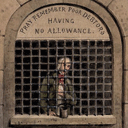
Richard Dienst’s The Bonds of Debt tells a series of intertwined but also divergent stories, all drawing us deeper into the mysteries of social life under capitalism but each gripping in its own distinct way. It’s not every writer in the Marxist tradition who has the courage to enter into mysteries he may not be able to elucidate, to tell stories that may not end by cohering as fully as he would like.

The intersection of class and race at Winged Foot golf course was pretty hard to miss. For me, it began to raise a few questions about how wealth and income is distributed in America and who, in the majestic equality of the law, gets to sleep under the stars and in sand traps after a bad night with the bottle.

Josh and Sarah recount the spectacle and ideology of last week’s Walmart shareholder meeting. Also discussed: a GOP effort to pre-empt paid sick days; a landmark legal ruling on unpaid internships; a letter from Elizabeth Warren on trade deal transparency; and two rallies in New York.
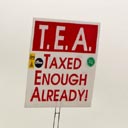
There is no conceivable benchmark by which one could sustain the argument that Americans—especially corporations and the wealthy—are taxed too much.

